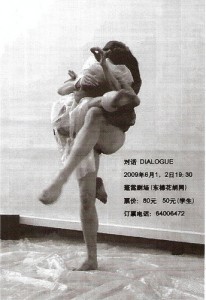While Laraine Wilkins has passed on and while I never knew her (though we did share a few brief emails when she was editor of Irreantum: A Review of Mormon Literature and Film and I’d submitted some poems for publication), I believe her impact on the world of Mormon letters remains. I think especially of something she said about the intersection of the Association for Mormon Letters (AML), Mormon/non-Mormon culture, and dialogue (as relayed by William Morris in his post at A Motley Vision memorializing Laraine after her sudden passing): said she,
I’m interested in seeing more dialogue happen—*dialogue* in order to have some groundwork for Mormon culture to enjoy more respect, or at least better understanding, from the outside community. Such dialogue requires both insiders and outsiders. I’d like to see AML do more of this. I think literature has great—perhaps even better—potential than history (though history is where most work is being done) or sociology to achieve this. Literature, although an expression of cultural identity in many respects, ultimately addresses individual experience[…]
This is one of the things that compelled me into the world of Mormon letters, one of the rhetorical moorings I cling to in my efforts to do some good in the world.
And that brings me to “Make Yourself at Home,” which was published in the Spring 2000 issue of Weber Studies (now Weber: The Contemporary West). It captures for me something of this dialogue, this dialectic between bodies in which each draws from the other in order to synthesize new understandings, to create new (rhetorical) bodies. It embodies, I think, the intellectual/emotional softening I’ve experienced as I break bread with others over the altar of humanity.
These lines seem especially apropos as regards my own attempts to put myself out there, to extend myself to others through the veil of words: “I want to be / enfolded by you, overwhelmed, / flooded, wrung out by you” (9-11). But such extension, such engagement with the Other in any situation requires that we let down our guard, that we give up our posturing, that we brush off the “politic presence” (3) and really give ourselves to another. As Christ suggests, this loss, this sacrifice of personal boundaries, this vulnerability is ultimately the only we can find ourselves, the only way we can “dance in step” (23) with the rhythms of eternity, the rhythms of God, the rhythms of home and Humanity and our deepest, embodied, human souls.

